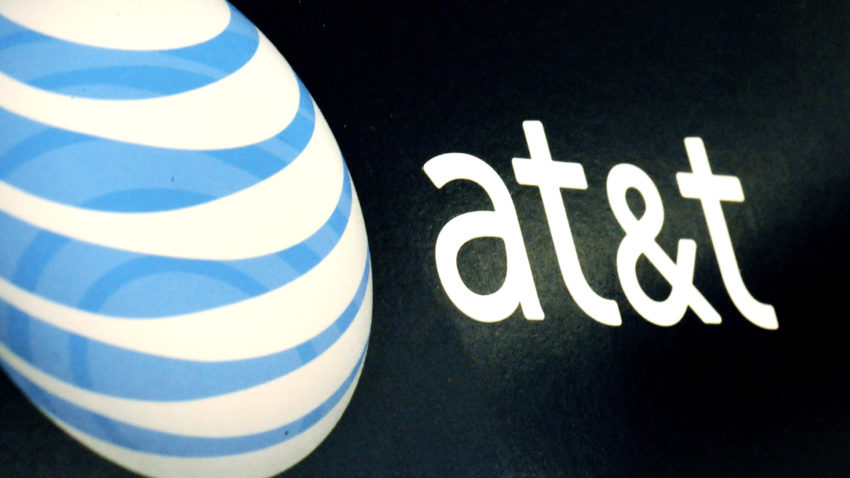M+E Connections

Roundup: AT&T, Time Warner Deal Tops the Media Headlines
Story Highlights
AT&T’s Saturday announcement of its deal to buy Time Warner has sent shockwaves across the media landscape, with big headlines splashed across news outlets as industry players and Washington lawmakers dive in for a closer look at how this proposed $85.4 billion blockbuster acquisition will affect the future world of media content and distribution.
• AT&T Inc.’s blockbuster $85.4 billion deal to buy Time Warner Inc. promises to reshape the media landscape—if the companies can navigate a series of obstacles, including possible opposition from U.S. antitrust authorities and objections by lawmakers and media and telecom rivals. Even before the deal was announced Saturday night, members of Congress, industry groups and Republican presidential nominee Donald Trump began to question it, contending the combination of AT&T’s millions of wireless and pay-television subscribers with Time Warner’s stable of TV networks and programming would limit competition and hurt consumers. Mr. Trump said if elected he wouldn’t approve the deal “because it’s too much concentration of power in the hands of too few.” Former presidential candidate Bernie Sanders on Sunday called on the administration to block the merger. “This deal would mean higher prices and fewer choices for the American people,” Mr. Sanders wrote on Twitter. (WSJ)
• It’s a game of musical chairs. AT&T is not looking to win so much as to SURVIVE! Just think about it, Time used to be a colossus, Warner too. The latter was early into cable, its music division fed the growth and now both are indie entities today, long gone. While the CEOs were going for shareholder value, they sealed their future, one in which standalone companies cannot survive. The last twenty years have been about disruption. Now we’ve entered the era of consolidation. (Lefsetz Letter)
• Wall Street doesn’t seem to think the marriage of AT&T and Time Warner is a smart move — particularly at this price. AT&T’s $107.50 a share offer for the company is 19% higher than where Time Warner’s stock is trading currently, and 35% over where it was before the rumors started. But if AT&T is offering $107.50, why isn’t Time Warner trading anywhere close to that level? The stock was below $88 Monday morning. It’s because Time Warner investors won’t really get $107.50, per se. (CNN Money)
• AT&T Chairman and CEO Randall Stephenson told CNBC on Monday that the telecommunications giant’s mega-deal to buy Time Warner is a “pure vertical integration.” The companies do not compete anywhere, Stephenson said, adding mergers of this nature usually get done by making concessions to regulators. Stephenson said content and distribution are converging, and he argued that this deal is a natural evolution of the industry. “Why put the two companies together?” he asked rhetorically, “speed.” (CNBC)
• Reaction to AT&T’s $85.4 billion purchase was swift — and, outside of Wall Street, full of skepticism. Much of the concern was rooted in how consumers have fared since Comcast bought NBCUniversal, a deal that provided a template for the consolidation of media and telecommunications. Acquisitions in general raise warning signs for regulators because of a reduction in competition. But combining a telecommunications company with a media company, in particular, raises questions about whether consumers would have less choice because the conglomerate both creates its own content and provides the pipes that deliver both its own offerings and its competitors’. (NY Times)
• In a world where customers increasingly consume media of all types online, AT&T, Time Warner, and their competitors have had to reevaluate business models that have stayed static for decades. Cable and wireless carriers in the U.S. experienced years of growth by expanding television packages and selling faster Internet connections to a generation of people coming online for the first time. And media companies have made a fortune raising subscriber fees on increasingly unwieldy packages of hundreds of TV channels. (Forbes)
• AT&T is seeking to take Time Warner — next to Disney the second-greatest content library — out of play, which therefore puts all other content makers in play, accordingly raising their value, and, at least in the short term, making AT&T look smart. (THR)
• The deal’s risk to consumers is clear. Following its acquisition of DirecTV, AT&T is the largest pay-TV operator in the US. It is also the second-largest wireless data provider and the third-largest broadband provider. That means AT&T controls a huge proportion of the bandwidth consumers use across multiple platforms. Buying a content producer like Time Warner would give it a big motive to make its own content faster or more accessible than competitors’. (Fortune)
• Time Warner owns a dizzying array of media properties, including HBO, CNN, Warner Brothers, DC Comics, TBS, TNT, the Cartoon Network and broadcast rights to many live sporting events. But it does not own Time Warner Cable, a separate entity that the cable company Charter Communications bought earlier this year. The deal confirmed today follow’s Comcast’s merger with NBC in 2011 and Verizon’s acquisition of AOL last year and planned acquisition of Yahoo this year. Pundits quickly noted that diving into the content industry could be AT&T’s attempt to fill the hole that is created as customers ditch cable TV in favor of streaming services like Netflix, Hulu, and YouTube. That’s true, but another shift is happening, too. (WIRED)
• On a macro level, the one thing media companies don’t have is access to consumers. Some TV networks, from CBS to HBO, are betting they can build direct-to-consumer businesses on their own to cater to the growing ranks of cord-cutters and cord-nevers. But they have found, in many cases, that support from big traditional distributors like cable providers—the experts in marketing, packaging and customer service—would help those products gain traction. In AT&T, Time Warner will have a giant pay-TV and broadband provider on its side. And to the extent AT&T creates more digital media products—on mobile or TV—Time Warner will be well placed. (WSJ)









